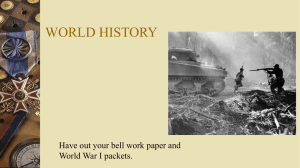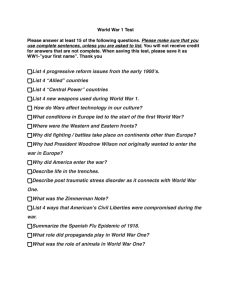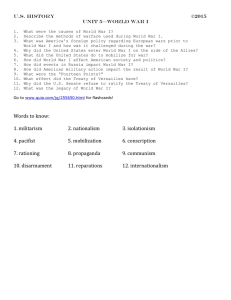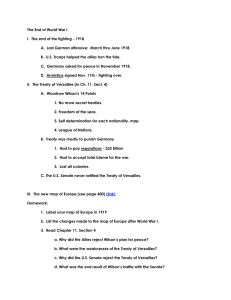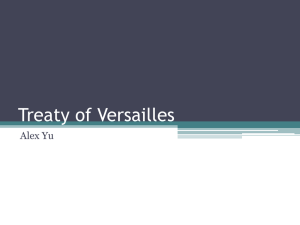The Paris Peace Conference and the Treaty of Versailles
advertisement
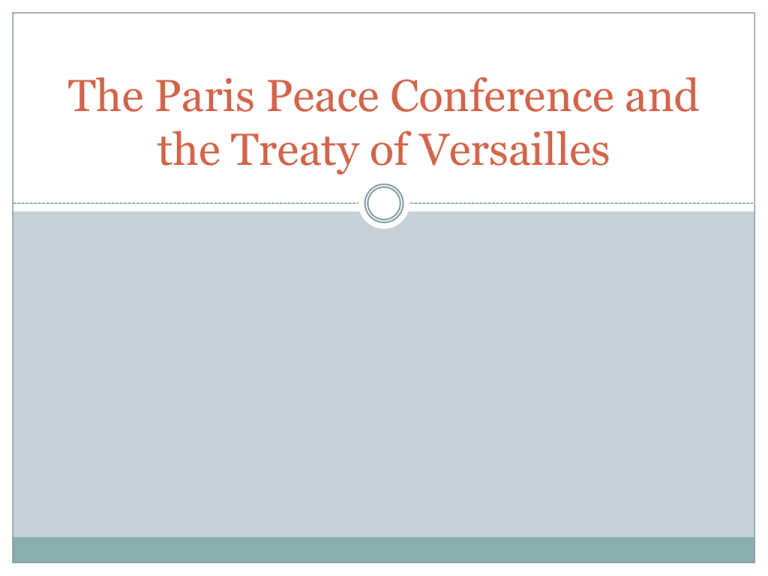
The Paris Peace Conference and the Treaty of Versailles Objective Today we will be able to identify the forces influential in the World War I peace process and how they impacted the outcome (Treaty of Versailles) The Paris Peace Conference In January 1919, representatives of the “big four” convened to discuss the aspects of the peace. The “big four” out of the 27 nations involved in the conference were major influences in the peace process. Great Britain, France, the United States and Italy. Main Demands of the “Big Four” at Versailles France Britain That Germany’s military be drastically reduced France occupy the Rhineland until Germany paid reparations Germany pay reparations to the allies. Less demanding then the French Restore Germany to reasonable economic strength Saw that Germany could be a force for stability in Europe Italy Territory Port of Trieste, South Tyrol (alps), Istria and northern Dalmatia (Adriatic coast) United States National self-determination Ethnicity should determine national boundaries. If it did, the world would be safe for democracy To support self-determination and international cooperation, a League of Nations should be created. Idealism vs. Realism Wilson was an idealist and his 14 points reflects this idealism Balance of Power and international cooperation, self determination, Clemenceau (Fr) wanted the “victor’s peace” at Versailles (Realism) Reparations (the “war guilt clause” Article 231) Treaty of Versailles Primary Source Analysis Summarize the territorial and political clauses provided from the Treaty of Versailles. Which foreign policy approach is reflected in the treaty? Major Aspects of the Treaty of Versailles War Guilt Clause Germany had to accept the full responsibility of, “loss and damage” caused the allies, “as a consequence of the war imposed upon them by the aggression of Germany and her allies.” Alsace Lorraine back to France Allied occupation of the Rhine Germany ceded areas of contested Belgium, Poland Germany reduce its military Reparations Billions in Gold Marks, merchant and fishing fleet, railroad stocks, build ships at no cost to the allies, and ¼ of its extracted coal per year.

